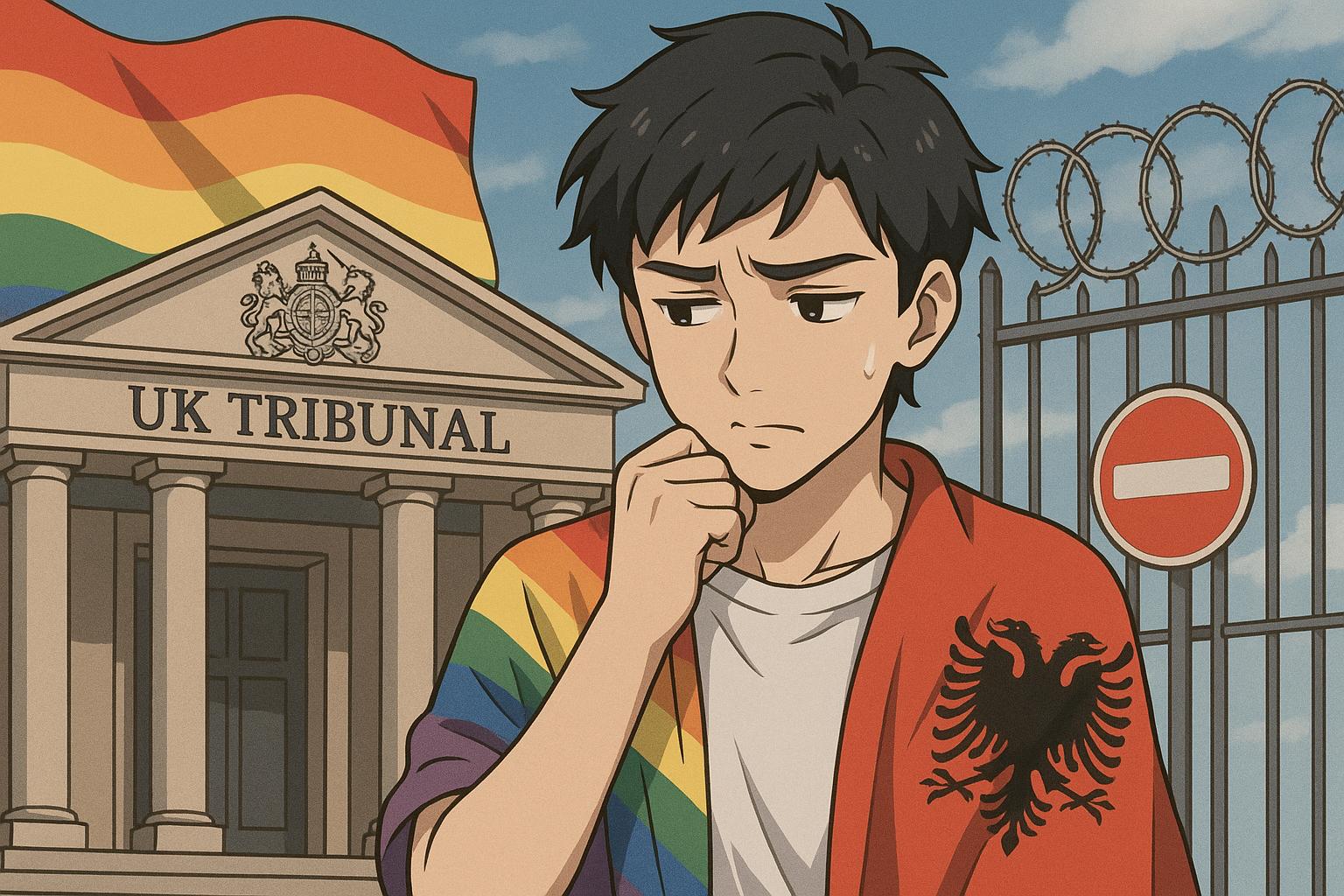A recent case involving an Albanian man has thrown the spotlight on the complexities surrounding asylum claims based on sexual orientation in the UK. The man, whose initial asylum application citing his homosexuality was rejected earlier this year, claimed that his sexuality had changed after marrying a woman. His marriage coincided with his initial asylum claim, leading judges to suggest that he had deliberately misled the Home Office by omitting to mention his new relationship.
The tribunal, presided over by Judge Lane, indicated that while sexual orientation can indeed be fluid, the man’s situation raised serious questions about the authenticity of his asylum claim. The judge noted that Demaj’s committed relationship with a woman appeared to conflict with his earlier assertions regarding his sexual identity. It was stated that he had reconciled with his father and believed disclosing his heterosexual relationship would hinder his bid to remain in the UK.
This case is emblematic of broader issues faced by LGBTQ+ asylum seekers in the UK, particularly those from countries like Albania, which, despite some legal progress, still presents significant societal challenges for non-heteronormative individuals. A 2019 report from the UK Home Office noted that while Albania has legal protections for LGBTQ+ people, deep-rooted homophobic attitudes persist in the society, creating an environment of fear and discrimination.
In stark contrast to this case, another story emerged from the experience of a lesbian asylum seeker from Albania, who fought a six-year legal battle to remain in the UK. This individual claimed she would face persecution if returned to Albania, highlighting the precarious nature of seeking asylum on the basis of sexual orientation. Despite her initial success in the First-tier Tribunal, her claims were ultimately dismissed, demonstrating the uphill struggle many LGBTQ+ individuals face within the UK immigration system. The judges involved described her situation as "hopeless," which underscores the significant hurdles placed before those seeking refuge based on who they love.
Moreover, analysis from the Migration Observatory revealed striking gender disparities in asylum outcomes for Albanians in the UK. In 2022, a staggering 88% of positive initial decisions for Albanian applicants were granted to women, while only 11% were awarded to men. This disparity reflects not only the different experiences of asylum seekers but also broader societal attitudes towards gender and sexuality that influence the likelihood of success in asylum claims.
Legal precedents set in cases prior have shown that the UK courts have sometimes held outdated perceptions of what constitutes a credible LGBTQ+ identity. For instance, a judge in 2019 controversially dismissed a gay man’s claim due to his failure to exhibit what was deemed a 'gay demeanour.' Such subjective assessments raise significant concerns about the fairness of the asylum process and the need for more objective criteria in evaluating claims based on sexual orientation.
As legal challenges continue, it is clear that while some individuals successfully evade the risks of returning to Albania due to their identities—like a lesbian couple who were allowed to remain for fear of discrimination—many others find themselves on precarious ground. The complexities of negotiating personal identity, societal expectations, and legal frameworks create a convoluted landscape for Albanian LGBTQ+ asylum seekers. The ongoing discourse around these cases emphasises not only the need for reform within the asylum system but also a deeper understanding of the multifaceted nature of identity and safety in the context of migratory pressures.
The dynamics of asylum claims for LGBTQ+ individuals continue to evolve, prompting calls for a more compassionate and nuanced approach from the UK Home Office and broader society.
Reference Map
- Paragraphs 1, 2, 3, 4, 5, 6, 7
- Paragraph 4
- Paragraph 3
- Paragraph 4
- Paragraph 5
- Paragraph 6
- Paragraph 7
Source: Noah Wire Services
